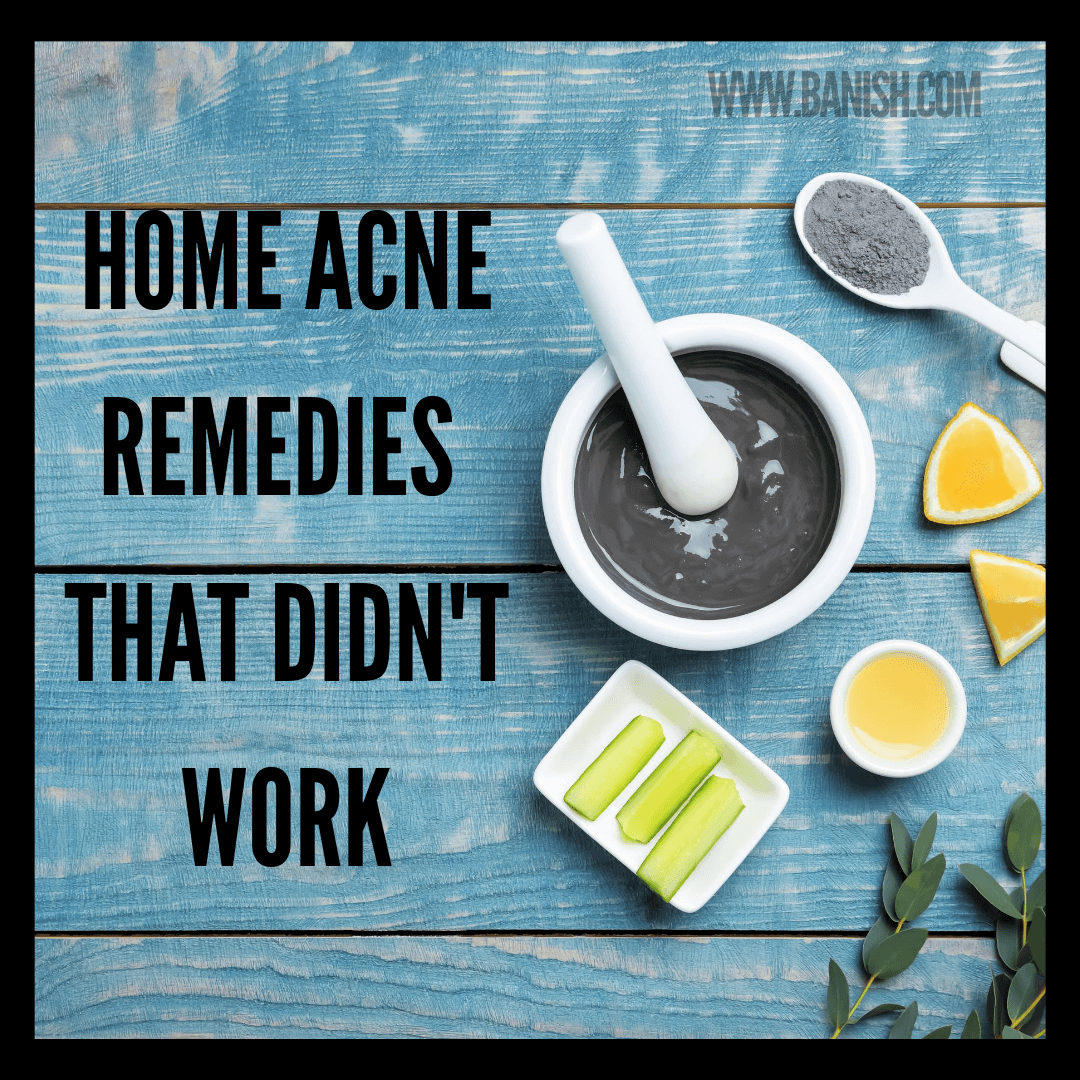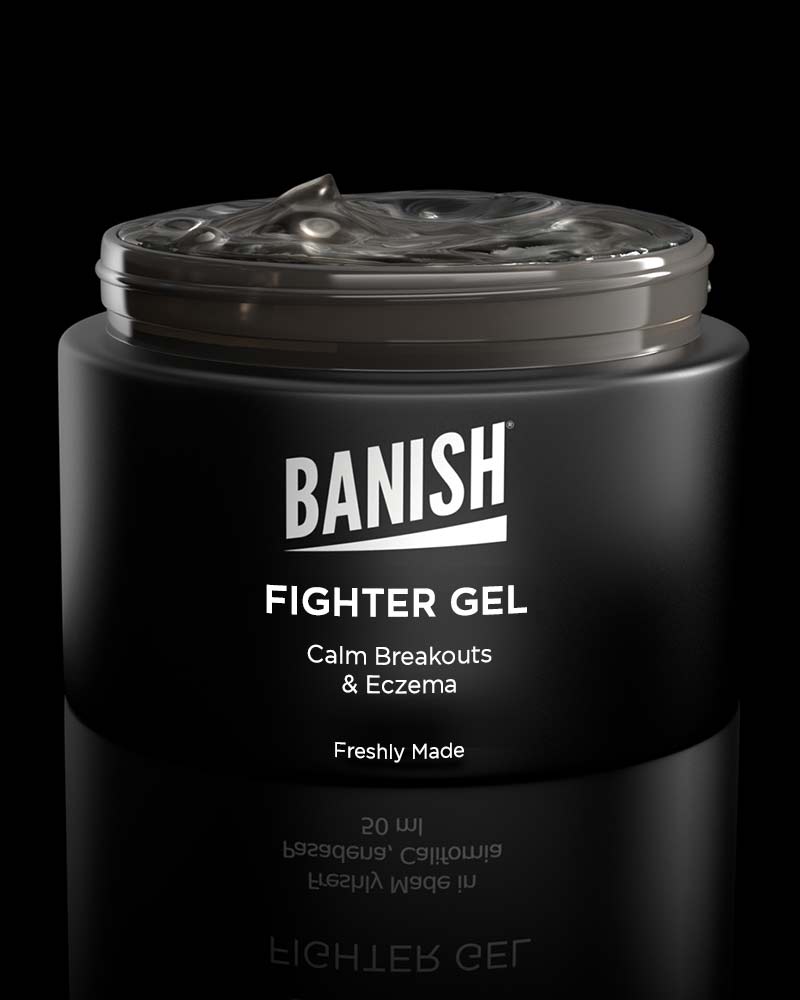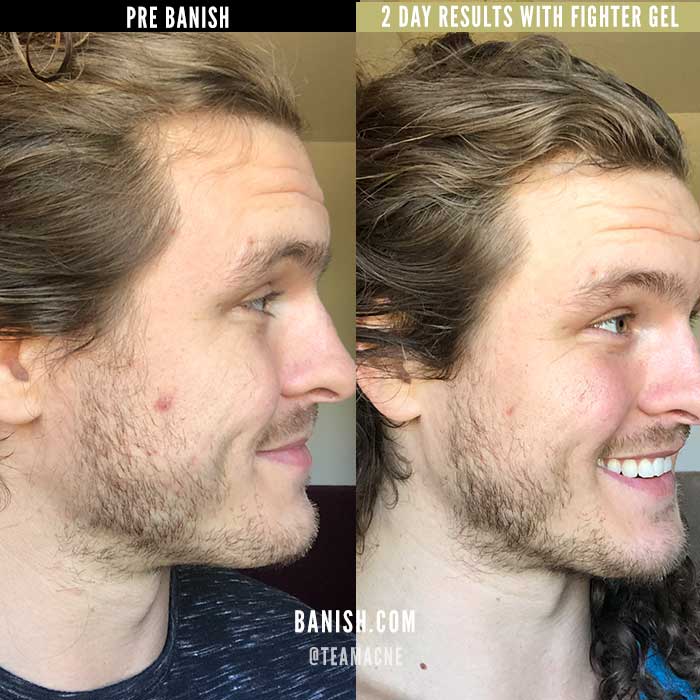In efforts to achieve clear skin, I did crazy things which now I think back to I wonder whether my head was on my shoulders. Unfortunately a lot of these “DIY” treatments, so to speak, I found on the Internet. Google being my best friend for school has definitely misinformed me a lot regarding my skin disease: acne.
Has someone ever told you to put toothpaste on a zit? Or crushed aspirin tablets on a pimple? What about using baking soda as a face wash? From apple cider vinegar to aloe vera, many people reach for kitchen-based skin care remedies because they're wary of the "chemicals" in over-the-counter skin care products.
Home remedies, in general, lack quality control and standardization of preparation and usage. I would stay away from home remedies because of this reason, even though some people may swear by these remedies. Some of these home remedies do have some use in dermatology, just not for acne." – Dr. Julia Tzu, Founder and medical director of Wall Street Dermatology.
Although some of these are considered natural, it doesn’t mean that they are beneficial for the skin. I highly advise you to not try these, even for the occasional zit.
- Apple Cider Vinegar
- Baking Soda & Water
- Lemon
- Tea Tree Oil
- Toothpaste
1) Apple Cider Vinegar - Also known as the all-natural toner, is supposed to help balance the ph of your skin protecting the acid mantle. It also is said to be a natural astringent, therefore killing the acne bacteria on the skin. First of all, toners are not meant to balance the PH, but really to soothe skin after cleansing and deliver antioxidants to the skin. Apple cider vinegar is a form of acetic acid and malic acid which can exfoliate dead skin cells, but it does not kill bacteria nor does it calm the redness. From personal experience, it added an extra step to my already long regimen, irritated my skin to redness, left a sticky residue, and did nothing for my acne.
Some people opt for a homemade astringent using apple cider vinegar with the claim that it "kills bacteria" and removes dirt and oil. Based on the results of these studies, it's possible that applying apple cider vinegar to your skin can control acne-causing bacteria, but more research is needed.
The acids in ACV can cause burns when applied directly to the skin for long periods of time. For this reason, you should dilute the vinegar with water and only apply the small amounts at a time. Avoid applying it to open wounds or to sensitive skin.
2) Baking Soda & Water - This is said to be great at gently exfoliating the skin as an at home microdermabrasion. It could also be used as a spot treatment to dry out the acne lesion. Baking soda does make an alkaline solution and produces a salt when it reacts with an acid. Again this myth on the benefits it has on acne is the balancing of the PH and its drying effect on the skin. All this does is dry out and irritate your skin and I believe that a scrub is never the way to go with acne-prone skin.
"Baking soda has a pH of nine, so I wouldn't upset the natural pH of the skin (pH 5.5). There are better ways to exfoliate with commercially available face scrubs that are more pH balanced." – Dr. Julia Tzu, Founder and medical director of Wall Street Dermatology.
Baking soda may help reduce acne breakouts and manage pain and inflammation of the skin due to its anti-inflammatory and antiseptic properties. However, using baking soda on the skin is not widely recommended by healthcare professionals, as it can irritate the skin and remove important protective oils. If people choose to use baking soda to treat acne, it is best not to use it every day and to only use minimal amounts.
3) Lemon - On a lot of YouTube videos, gurus advertise its abilities to fade acne marks, dark spots, and “lighten” the skin. Lemon is so acidic and it burns just to leave it on for a couple of minutes, which unlike a good workout, does not mean that it is working. Although it contains 5% citric acid, it doesn’t exfoliate the skin properly. Therefore, it does not unclog pores and does nothing for the inflammation and acne scars.
Some people use pure lemon juice on a cotton ball and swab it directly onto the skin. Some sources claim that lemons "contain a natural astringent and antibacterial agent."
Citrus fruit extracts are often included in skin care products due to their antioxidant content. Generally speaking, antioxidants — such as the vitamin C in citrus fruits — are thought to help fight free radicals in the skin and also help boost collagen levels. If you’re treating acne, you might be wondering if plain lemon juice can be more effective than an over-the-counter (OTC) combination product.
4) Tea Tree Oil - I was a serious victim of this oil. Unlike any other of the home remedy treatments, I really thought this was benefiting my skin. It has great antiseptic qualities and is used in many cosmetics and washes. Even though it can kill bacteria, it is largely unproven for the treatment of acne, dandruff, and other skin infections. Upon instruction, it has to be diluted with water before applied and causes a burning sensation for up to 5 minutes. Irritation does make acne worse and this is one of those remedies that does more harm than good.
"Tea tree oil has beneficial antimicrobial and antifungal properties, but I often see people who come in with a severe rash after applying tea tree oil on the skin, perhaps improperly without dilution," - Dr. Julia Tzu, Founder and medical director of Wall Street Dermatology.
If tea tree oil is correctly diluted, most people can use it on their skin without any serious problems. However, some people may develop an allergic skin reaction or skin irritation on the area where the oil was used.
5) Toothpaste - I don’t know where I got the idea of dabbing some toothpaste on my acne wound when it's meant for your teeth and contains chemicals like flouride. I’m pretty sure some kooky relative who has never had acne before told me all my problems would disappear with a dab of toothpaste. The toothpaste did temporarily dry the acne lesion but made it turn red and flaky as a more long-term effect. Do not use this remedy; it will harm your skin.
"Fluoridated toothpastes can actually trigger something called perioral dermatitis." Perioral dermatitis is a skin rash composed of small, red, pus-filled bumps concentrated around the mouth.
The rumor mill might have you believing that dabbing some regular old toothpaste on your zit will help it clear up overnight. But while it’s true that several ingredients found in toothpaste are drying to skin and might help shrink your pimple, this home remedy for breakouts isn’t worth the risk.
Aside from the ones mentioned above, there are other home acne remedies that don’t work and are not worth risking your skin’s health with.
- Zinc supplements
- Honey and cinnamon
- Green tea bags
- Aloe vera
- Fish oil supplements
- Aspirin
6) Zinc Supplements - Researchers also believe that zinc might help treat acne by suppressing the production of sebum and fighting acne-causing bacteria. These effects would allow it to treat non-inflammatory acne, too.
Zinc is an essential mineral that the body needs to perform some important functions. The National Institutes of Health (NIH) note that zinc is essential for the following bodily processes:
- growth during childhood and adolescence
- wound healing
- enzyme activity
- immune system functioning
- cell division
- DNA and protein synthesis
7) Honey And Cinnamon - Dr. Tzu said: "Sounds delicious and appealing, but not exactly the treatment for acne. Medical grade honey (manuka) might be helpful as an antibacterial agent, but again, not a fix for acne."
Although honey may be good for healing wounds, its effects on acne are unclear. A group of 136 people participated in a randomized controlled trial to evaluate if topical kanuka honey, a close relative to manuka, can help with acne. They also used an antibacterial soap twice a day as part of the study. The results? Only four of the 53 people in the honey group saw any significant improvement in their acne. Although this calls the potential benefits into question, it’s too soon to rule honey out. More research is needed to determine whether honey can be effectively used against acne. Cinnamon, too, may sound like a promising ingredient to add to your routine. However, the scientific evidence on humans is lacking right now. More research is needed before it’s recognized as an effective treatment for acne.
8) Green Tea Bags - Green tea bags applied topically supposedly decrease inflammation around the acne because they reportedly help remove "toxins and bacteria." Although drinking green tea may be beneficial for acne as well as for overall health, researchers haven’t yet confirmed what dosage is most effective.
9) Aloe Vera - Some people swear by aloe vera in place of a typical moisturizer for acne-prone skin, claiming that it reduces redness. Some sites even claim that aloe "removes excess oil and dirt." There are chances that aloe vera may not suit your body, skin or hair, which can further lead to side effects. It is also the latex of the aloe vera plant that many people may be allergic to.
10) Fish Oil Supplements - An anecdotal evidence suggests that omega-3 fatty acids found in fish oil can help improve or treat acne. It was also found that both fish oil and borage oil supplements helped in reducing inflammatory acne by 40 to 50% and non-inflammatory acne by about 20%. But, that’s not always the case.
There is a lot of pseudoscience out there about fish oil and its effect on acne. Some claim that an oral fish oil supplement is great for female hormonal acne.
11) Aspirin - Crushed aspirin is one of the oldest acne remedies in the book. Apparently, the goal in crushing aspirin and applying it like a paste to a zit is to take advantage of the acetylsalicylic acid within the tablet that supposedly treats the zit like salicylic acid.
For those of you who don’t know, putting aspirin on your face may sound bizarre, but there’s actually a scientific basis for this home remedy. That’s because aspirin contains acetylsalicylic acid, which is similar to salicylic acid, an ingredient found in many over-the-counter topical acne medicines.














Leave a comment
All comments are moderated before being published.
This site is protected by hCaptcha and the hCaptcha Privacy Policy and Terms of Service apply.